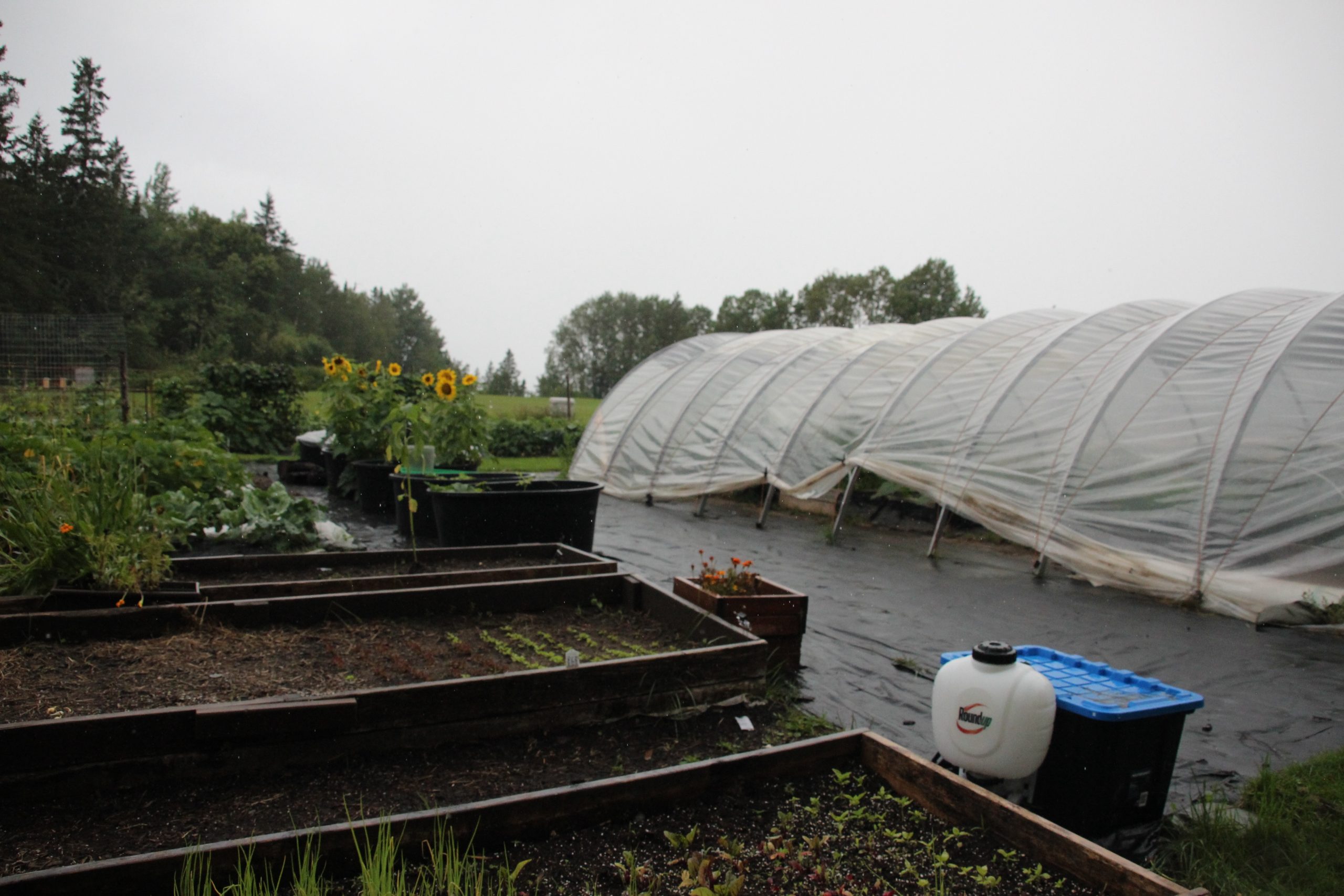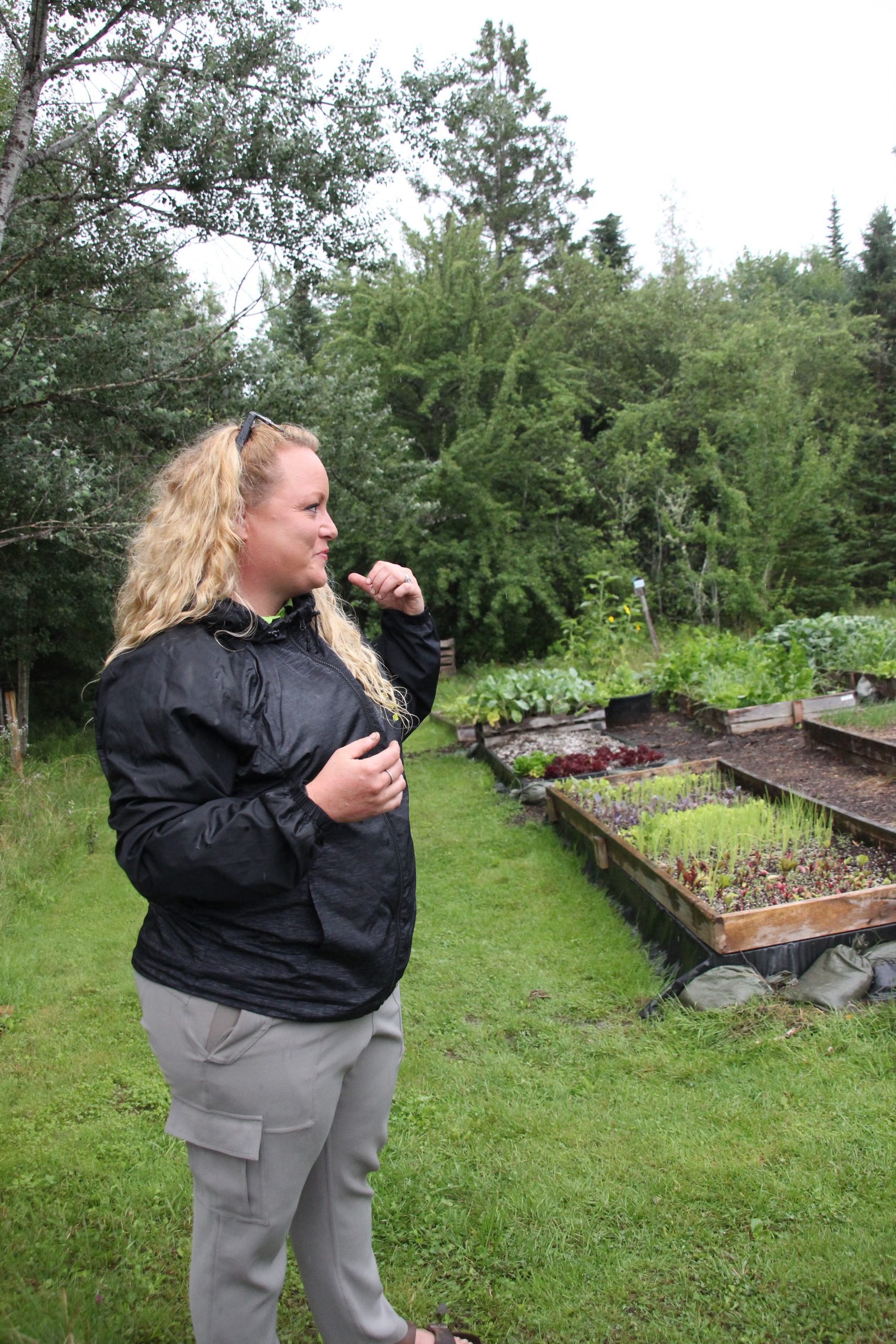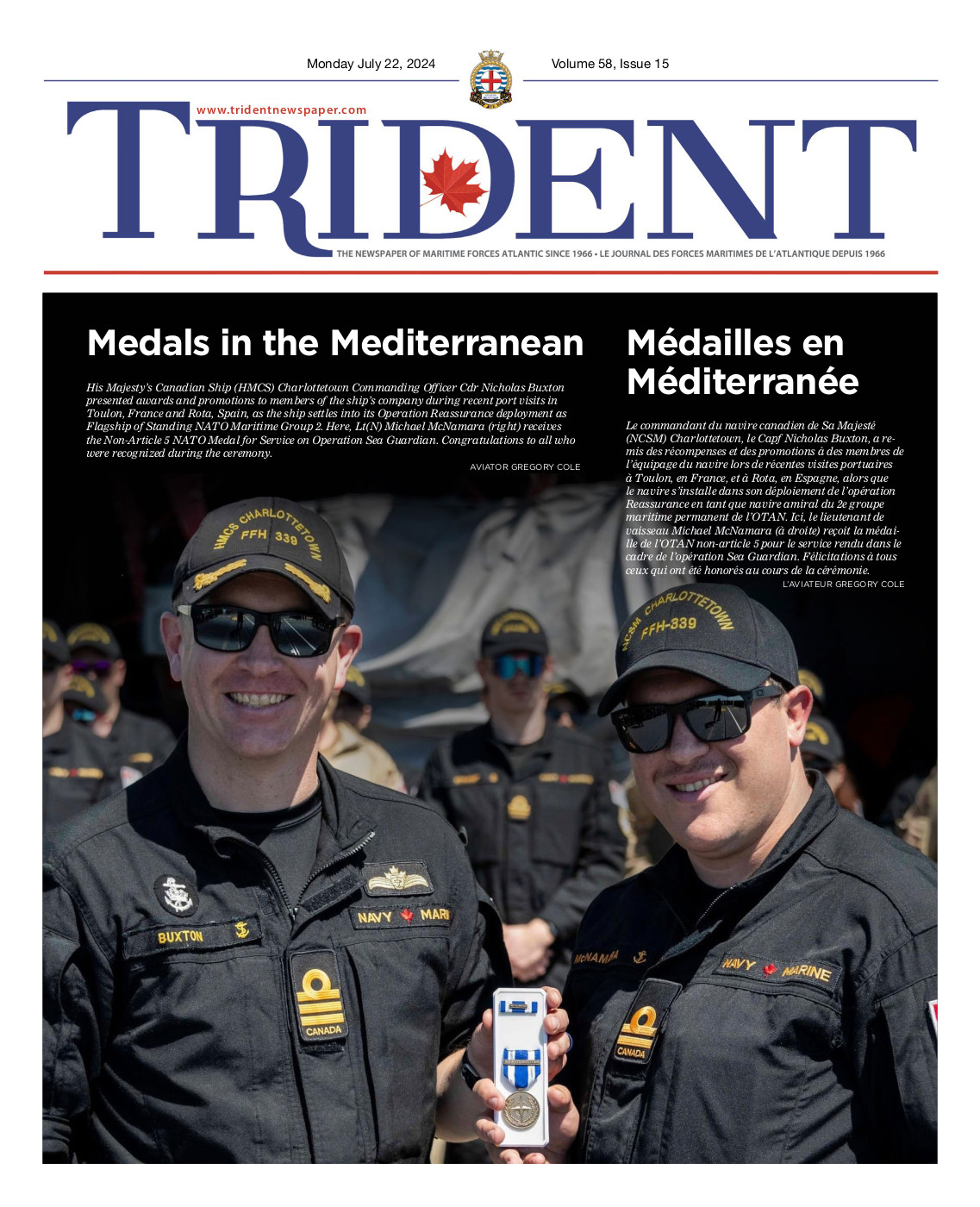
JOANIE VEITCH
Veteran Farm Project: healing through nature and nurture
Par Joanie Veitch,
Équipe du trident

JOANIE VEITCH
Before they bought the site in 2018, the property Jessica Miller and her husband Steve Murgatroyd now operate as the Veteran Farm Project in Hants County had been abandoned for several years; the farmhouse was dilapidated and the seven-acres it sat on was overgrown.
As they cleared the debris to make space for vegetable boxes and garden beds, Murgatroyd built a small potting shed and Miller planted seeds.
Recently released from a 21-year career in the military, Miller was struggling with injuries — both physical and mental, and hoping to find a place to heal and recover. She laughs now at the memory of the ramshackle property they saw that spring day at Sweet’s Corner.
“It was in rough shape. It had been abandoned for years and was derelict,” she said. “I knew it would be a lot of work, but I fell in love with it pretty much at first sight.”
Miller had worked as a medic with Canadian Forces Health Services Centre (Atlantic), served on RCN ships, and completed a tour in Afghanistan. Murgatroyd had also served in Afghanistan, and Bosnia before that, but it was in 2015 — at home in Nova Scotia, on the highway near Truro — where he lost the lower half of his left leg after a car sideswiped him on his motorcycle.
Turning the rundown farm into something workable meant long days of hard labour, but not long into that first year the structure of their farm began to take shape. Not knowing yet how much this small patch of green space would expand in its scope — Miller already sensed their “retirement project” might grow into something entirely different.
Having studied environmental management in university, Miller said she’s always known the value of time spent in nature. Now released from the military, she was struggling — trying to deal with both her injuries and ongoing trauma following a damaging situation on board ship that resulted in sexual assault charges and a court martial hearing.
Working on the farm, Miller was experiencing first-hand the healing and recovery that comes from being outdoors, planting the early seeds of the Veteran Farm Project.
The idea for the project began to take root and grow after Miller heard of some veterans and their families who were struggling financially and not able to buy nutritious food. Harvesting produce from her new garden, she put together food packages with vegetables for delivery, thinking deeply as she worked about the ever-enlarging circle of benefits that comes from working outdoors, planting seeds and digging in dirt.
Reflecting on the challenges many people face after being released from the military — especially women — Miller began thinking about how she could help other individuals like her, and the veteran community at large.
Feeling a sense of purpose, she reached out to Valerie Mitchell-Veinotte, executive director of the Royal Canadian Legion’s Nova Scotia/Nunavut Command, for support.
Now, four years later, those early seeds have grown into a project that benefits many, as the Veteran Farm Project works with the Legion to identify veteran families and individuals in need — harvesting, packaging and delivering fresh farm produce to 40 families and 150 individuals in mainland Nova Scotia, and another 30 families in Cape Breton.
“We have our list from the Legion — they organize all of that end of it so it is completely private — and every Wednesday we set everything up for packaging on Thursday morning and delivery Thursday afternoon,” explained Monica Collicutt, the farm’s office manager. “It’s such rewarding work. This is my first year working with the project and it’s the most rewarding thing I’ve ever done.”
Working with a small group of 10 to 12 volunteers — mostly women — Miller has created what’s best described as a healing farm and garden. Researching horticulture therapy programs and books on mindful garden layout and purposeful planting, she thought carefully about how to “build” the structure of the farm while keeping needs of the women volunteers in mind — many of whom are dealing with trauma related to PTSD and other events they dealt with during their time of military service.
“In a typical farm you try to get as much out of the land as possible and use all the space, but we’re not about that,” she said, looking out over the raised garden beds and “hooped” greenhouses. “We’re about healing and coming together as a tribe of women. We support each other… that’s our purpose. The food that we grow is the by-product of that.”
Encouraged to take on jobs that suit them best, volunteers do everything from general farm work to packaging up the veterans deliveries to selling produce and other items from the farm stand. Some lead yoga sessions or bread-making workshops, while others — like Emily Wensel — have tapped into their artistic skills, creating small watercolours that have proven popular at the farm stand.
“I don’t know where I’d be without this place, to be honest,” Wensel said. “When I first started here I was super lost. I was dealing with PTSD and had to stop work. Working at the farm gave me a sense of purpose again. I get up in the morning and I have a place to go, and knowing what we do here is helping veterans in need, I feel like I’m still being of service.”
For more information about the Veteran Farm Project, visit www.veteranfarmproject.com.





